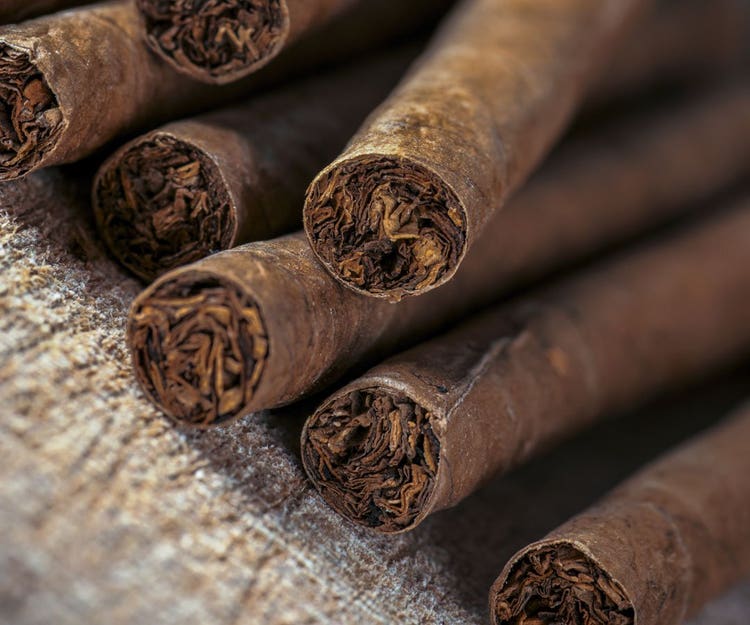
Are my Romeos fakes?
A: This is a most interesting situation. They may be swapping out the boxes and filling them with Habanos, as you suggest. However, the bands on your cigars do not match the band in my Cyclopedia of Havana Cigars. Those in the book have a thinner brown band with two black rule lines above and below, but the Cuban version says “ROMEO Y JULIETA” (all in caps) in a small font, and the word “CHURCHILL” below in a bold, all-caps font, with the word “HABANA” to the right in small type in all caps. The only thing yours had in common were the black rules and the word HABANA to the right in caps. So, there is a strong chance they are knock-offs.
If they were the genuine Dominican brand, they wouldn’t have gone through all the trouble of printing Habana on the label, either. That said, if they smoke well and taste great, and you got them as a gift, then perhaps it doesn’t matter.
* * *
In the meantime, I sent an email to my contact at Altadis, U.S.A., maker of Romeo y Julieta cigars,with Bob’s photos attached and received the following reply:
“They are probably knock-offs. I can’t imagine why anyone would put real Cuban cigars in a Dominican-marked box. The packaging, nor the cigars appear to be from our Dominican Factory, TDG, which is the manufacturer for all RyJ cigars legal in the U.S.”
* * *
Sorry ’bout that Bob, but since your daughter believed she was buying you the genuine article, no harm no foul. I just hope she didn’t overpay for them. The important thing here is that at least you like the way they taste, so maybe they are decent Cuban cigars or good Dominicans in sheep’s clothing. (And bad clothing, too.)
For the record, it’s probably in the best interest of all consumers traveling abroad to have the merchant open the box before completing the sale, especially when buying any cigars in the Caribbean and Mexico. Better to find a genuine tobacconist or stick with the duty-free shops.